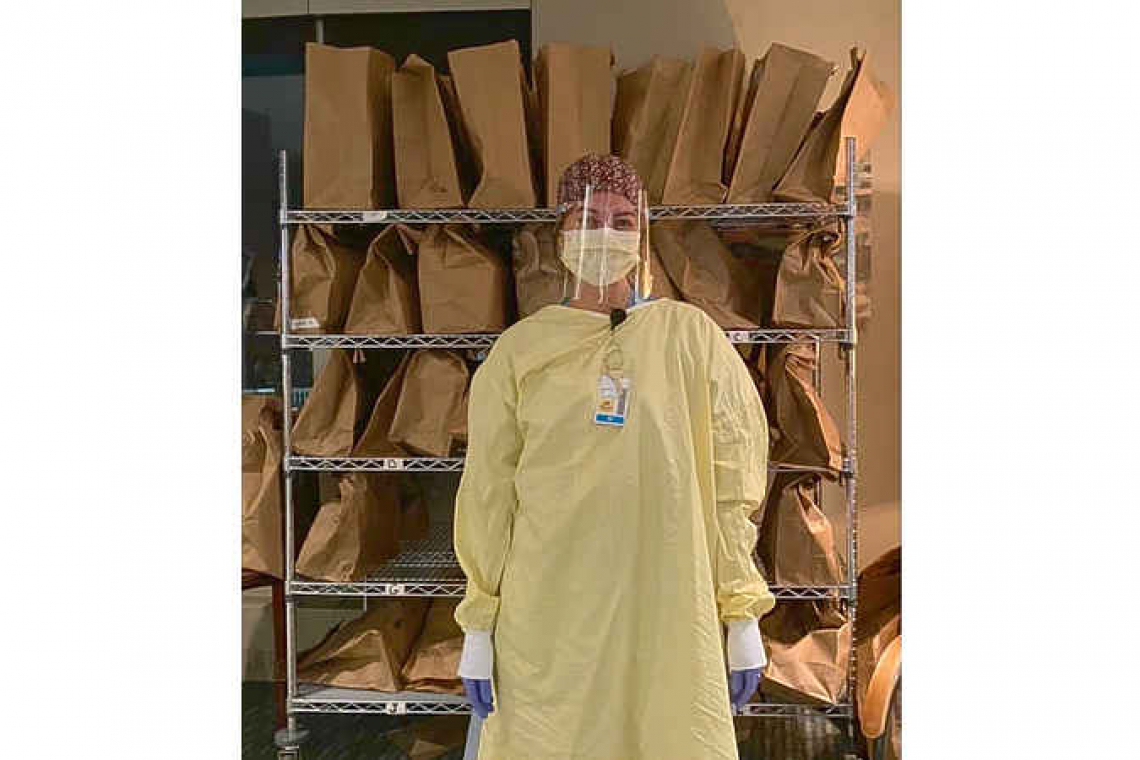Many students don’t know quite what to expect after graduation. This couldn’t have been more true for Ryan Schonenberg, who at age 22, graduated from a nursing programme during the thick of the coronavirus COVID-19 health crisis – May, 2020. Ironically, the pandemic, while driving up demand for healthcare workers, also delayed her state board exam and ability to start practising. One year after graduating, and fully seasoned in the new normal, Ryan is sharing her experience with The Weekender.
Background
Ryan was born and raised in St. Maarten, and moved to St. Paul, Minnesota at the age of 14. She returns regularly to visit family. She graduated with a BSN (Bachelor of Science in Nursing) from College of St. Scholastica, before taking the state board exam NCLEX and starting to work at St. Joseph’s Hospital in downtown St. Paul.
The strictly in-person exam was delayed, as fewer people could take it at a time due to COVID-19 restrictions. Starting to work also proved difficult, as hospitals were adapting during the pandemic and cancelling elective procedures. It also takes resources to train new nurses to work on the floor. In October, Ryan started to work at St. Joseph’s which had become designated for COVID-19 patients in the area. She works with these patients, and with mental health patients.
Starting in the new normal: a few impressions from the ward
After four years of training, Ryan ended up working in a specialty for a disease that had only been around for a few months. That alone was unexpected, and it also makes the future unclear. What direction will she take later, what direction will the hospital take later?
“What made the biggest impression on me when I started, was coming to terms with the new normal: people having to stay in their rooms, no visitors being allowed, and realising that I was the person there when no one else could be. I provided comfort and was a caregiver, their support system while they are alone in one of the scariest times of their lives.”
Only one patient was allowed per room, each room equipped with an iPad so that patients could stay connected to loved ones. This sometimes-included loved ones in other rooms of the same ward – close in proximity but still separated. That dynamic was sometimes plagued by guilt, of patients who knew they had passed COVID on to their families.
“It was, and is, difficult to connect to patients with half mask, gown, and gloves. Half your face is hidden, and your entire body is covered. It taught me to be aware and very verbal, sharing my name, role, and what I’m here to do. Trying to give them a sense of control in their own care.”
Even now, after gaining both experience and confidence in the role, Ryan says it is scary how quickly and unpredictably COVID patients can go into decline. Oxygen needs can increase suddenly, and many patients “don’t realise just how sick they are, and how much oxygen and medication they would need to stay alive.”
Outright COVID denial has not been a big issue in her experience, but rather the denial of how seriously sick the patients think they are, and an underestimation of what they would need to get better. Some of the younger population in particular, she says, treated it as if it were not that serious, until they were personally affected. Then they had to deal with the guilt of passing it on to their families. Other patients were careful and didn’t know where they got it from. “It can be very emotional.”
Some patients had delayed seeking medical attention, as they had no insurance. “But, the longer they wait, the harder it is to get them back to where they need to be.”
Vaccine roll-out
The hospital runs a clinic that offers vaccines, and Ryan and her colleagues administer vaccines when not working at the hospital. “It’s great seeing how excited people are when getting the vaccine, and the roll-out is helping numbers to decrease. We vaccinate around 200 to 300 per day, and I myself vaccinate around 55 per day. We are lucky to have the resources to do so.”
Looking forward: Vacationing once that’s a possibility, future career
“I would definitely like to visit my grandparents in Amsterdam as soon as I can. I had planned to, but needed to put those plans on pause. Then, I’d visit St. Maarten.”
Concerning her career after this, Ryan initially wanted to work in paediatrics, but enjoys working with adults and knows that she has her options to choose from. Time will tell. “There is variety in nursing, you can work with new-borns, all the way up to patients in the end stages of life.”
One impression that stays with her: “Being in a hospital where everything is truly done to keep a person alive. You always hear medical workers saying ‘we did everything we could,’ now I see what that means.”







